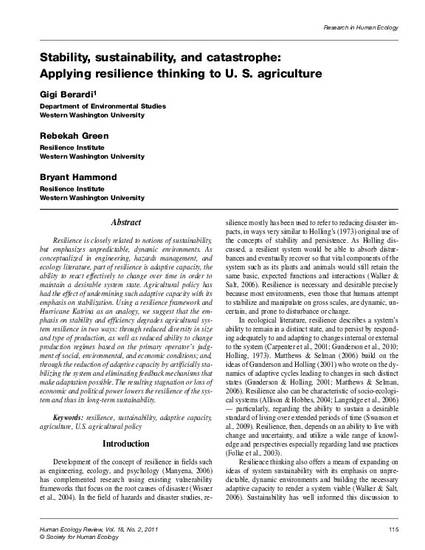
- Resilience,
- Sustainability,
- Adaptive capacity,
- Agriculture,
- U.S. agricultural policy
Resilience is closely related to notions of sustainability, but emphasizes unpredictable, dynamic environments. As conceptualized in engineering, hazards management, and ecology literature, part of resilience is adaptive capacity, the ability to react effectively to change over time in order to maintain a desirable system state. Agricultural policy has had the effect of undermining such adaptive capacity with its emphasis on stabilization. Using a resilience framework and Hurricane Katrina as an analogy, we suggest that the emphasis on stability and efficiency degrades agricultural system resilience in two ways: through reduced diversity in size and type of production, as well as reduced ability to change production regimes based on the primary operator’s judgment of social, environmental, and economic conditions; and, through the reduction of adaptive capacity by artificially stabilizing the system and eliminating feedback mechanisms that make adaptation possible. The resulting stagnation or loss of economic and political power lowers the resilience of the system and thus its long-term sustainability.
Available at: http://works.bepress.com/rebekah-paci-green/2/
